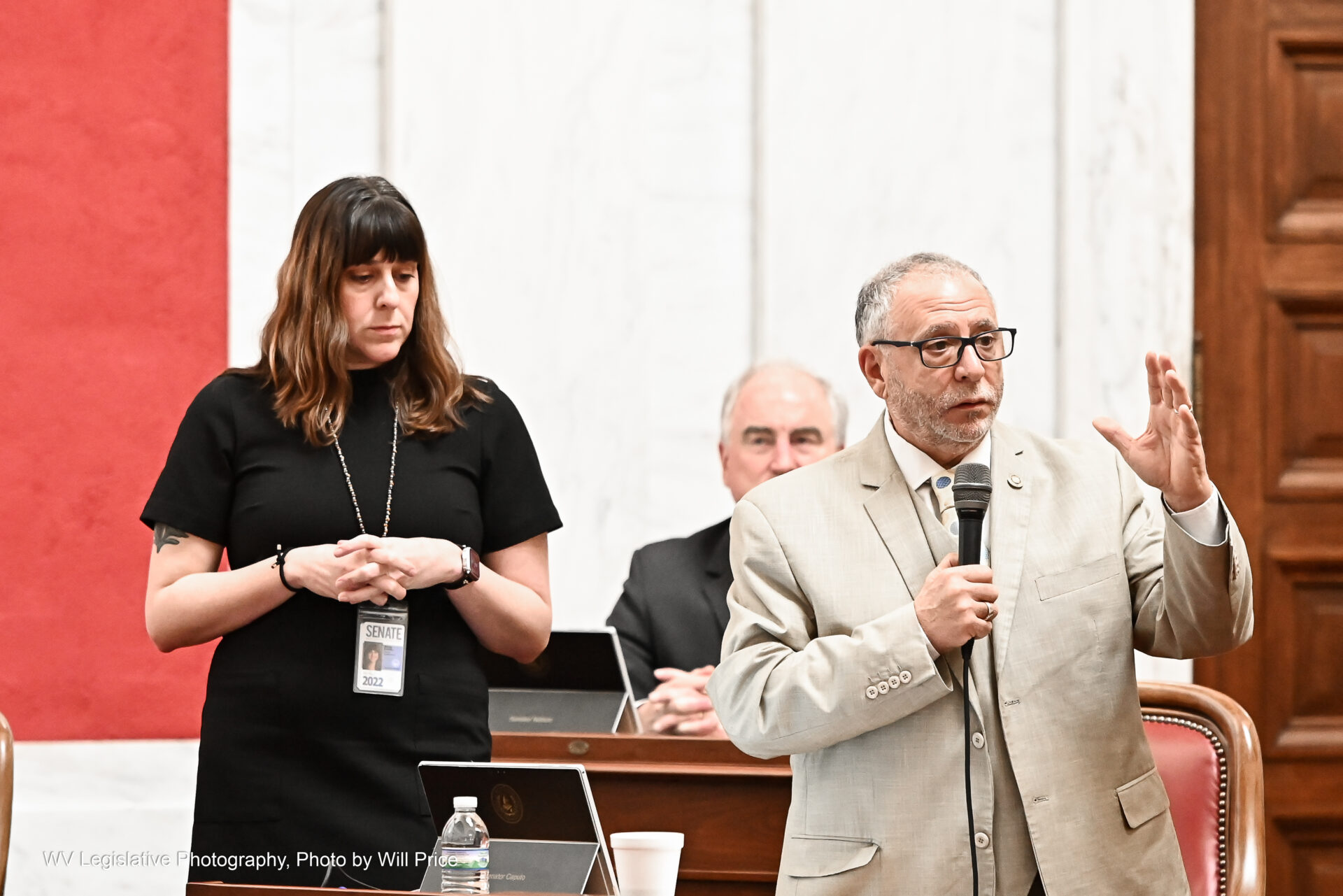A bill lawmakers are calling the Women’s Right to Know Act passed the Senate and now heads to the House for their consideration.
Amid a flurry of lawmaking on crossover day, the last day for a bill to pass out of its originating chamber, the Senate passed a bill to provide women with information and support to provide informed consent for abortions.
Sen. Mike Maroney, R-Marshall, explained Senate Bill 552 on the Senate floor.
“In the case of a female seeking an abortion of a nonviable embryo, or fetus, the bill provides information that is made available,” Maroney said. “The bill also provides a 24-hour telephone number that shall be established by DHHR to maximize public awareness of its existence, which may be called to obtain a list and description of agencies in the locality of the caller of the services that are offered.”
The bill faced some debate from Sen. Mike Caputo, D-Marion, who questioned the logistics of the bill and its validity given GenBioPro, a manufacturer of generic mifepristone, commonly known as an abortion pill, is suing in federal court to invalidate West Virginia’s medication abortion ban.
Maroney said prescribers in West Virginia have to hold “a special license” to prescribe mifepristone and said no one is prescribing the drug in the state. In regards to the lawsuit, Maroney said he had no comment on the pending court case.
“We don’t really have a comment on the pending court case,” Maroney said. “I do believe this was constructed in a way to try to not affect any impending or any pending litigation.”
Caputo asked if the West Virginia Department of Health and Human Resources would operate the bill’s 24-hour hotline, and how that might play out given the current legislation awaiting Gov. Jim Justice’s signature that would restructure the department into four separate bureaus.
Maroney said the hotline would fall under the purview of the new Bureau of Public Health.
Caputo continued his questioning of Senate Bill 552, asking if the Senate Committee on Health and Human Resources had consulted with physicians about the language of the bill.
“I know you’re a physician, very well respected, and I respect you immensely, you know that,” Caputo said. “Have you had any conversations with OBGYN in regard to this legislation? And I’d like to know if you did, what their thoughts were on this?”
“Yes. I mean briefly, mostly during the special session, more so than this, this bill. Their thoughts are they’re going to abide by the law, whatever that law is. And they just tried to guide us to make sure that our bill was at least as close as possible to allowing them to perform this standard of care,” Maroney said. “I didn’t ask him for their input. I did ask him, and they were the ones that told me about no one in the state is prescribing them mifepristone.”
Senate Bill 552 replaces language that referenced “physician” and replaced it with “licensed medical professional.” It also includes language that would revoke a licensed medical professional’s license if they willingly violate the bill by performing an abortion outside of the parameters set in the bill.
Finally, the bill provides for perinatal hospice service, something Caputo asked for a definition of. Maroney answered that support would be provided for comfort measures to help people deal with the loss of a child.
After debate on the bill, Sen. Patricia Rucker, R-Jefferson, stood in support and spoke in favor of Senate Bill 552 and clarified the discussion around perinatal hospice service allowed for in the bill.
“This law, the Women’s Right to Know Act, and all of the criteria set here in terms of making sure a woman has information when she’s making a decision as to whether or not to abort, making certain she has access to perinatal hospice services, which is counseling, and essentially support and help, there are times in which even a child who they say cannot live outside the womb does live, maybe for one hour, maybe for a day, but it does happen,” Rucker said.
She said the bill is already law in West Virginia, referencing House Bill 302, the state’s near-total abortion ban passed in 2022.
“We are reinserting it because when we passed our law in September, this inadvertently got left out. And yes, we do prohibit, in the state of West Virginia, abortions except for cases of rape and incest, and if the fetus is basically not viable. If it’s an ectopic pregnancy, that’s not considered an abortion,” Rucker said. “But the point being, even in those cases of rape and incest, a woman should have all the information and support and services, even in the cases where the fetus is not viable, a woman should be wrapped around with support information.”
Senate Bill 552 passed with 31 voting yea, two nays, and one absent.
